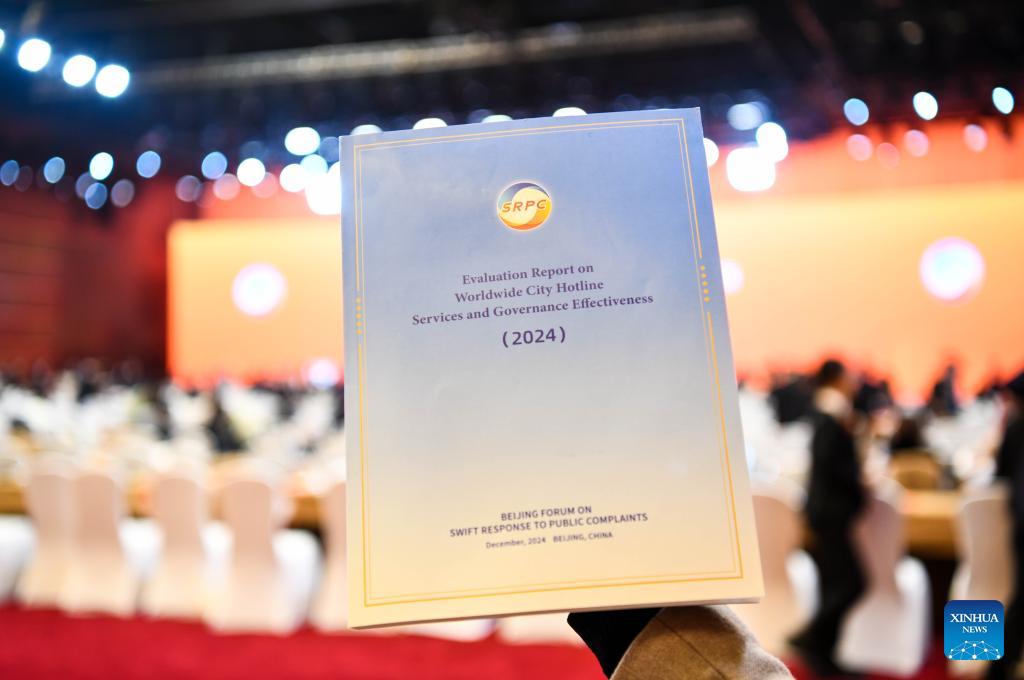еҸӮиҖғж¶ҲжҒҜ

Report on hotline services of world's major metropolises released

The Evaluation Report on Worldwide City Hotline Services and Governance Effectiveness is pictured during the 2024 Beijing Forum
on Swift Response to Public Complaints in Beijing, capital of China, Dec. 18, 2024. [Photo/Xinhua]
The hotline services of 20 major international metropolises around the globe have proven outstanding performance in terms of process governance, collaborative governance, smart governance and responsive governance, according to a report released Wednesday in Beijing.
The Evaluation Report on Worldwide City Hotline Services and Governance Effectiveness was issued during the 2024 Beijing Forum on Swift Response to Public Complaints, which lasts from Wednesday to Thursday.
Co-organized by the Chinese Academy of Social Sciences, China Media Group, the Communist Party of China Beijing Municipal Committee and the Beijing municipal government, the forum focuses on searching for innovative and practical solutions to issues facing public service and sharing experience on urban governance.
The report selected 20 major cities around the world, including Beijing, Shanghai, Guangzhou, Hong Kong, Seoul, Singapore, Tokyo, Berlin, Paris, Madrid, London, Toronto, New York and San Francisco, to evaluate the effectiveness of their hotline services and governance.
According to the report, the development of global urban hotline services shows many common characteristics and trends, emphasizing resource integration, channel construction, intelligent application and data mining, and citizens' feelings.
Industry insiders believe as the first worldwide systematic analysis of the trajectories and trends of city hotlines, the report pioneers a governance-based framework to offer a panoramic assessment of their services and governance efficacy.
Meng Tianguang, head of the report's expert group and professor of the School of Social Sciences of Tsinghua University, said it could provide a scientific decision-making basis for worldwide continuous optimization of resource allocation, improvement of public service efficiency, promotion of urban governance innovation, and enhancement of people's well-being.













